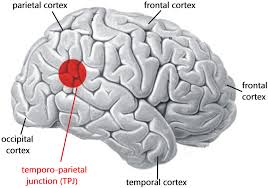Alzheimer’s Disease: Explained in 3 Levels of Difficulty By Taha
- neurohub43
- Oct 21, 2024
- 3 min read
Updated: Oct 22, 2024
Alzheimer’s is a very potent killer; many of you know it for draining people’s memory and slowly destroying the brain. While daunting, this article will hopefully allow you to understand more about the disease, from beginner-friendly to complex explanations.
BEGINNER
Dementia is a term for cognitive decline, with Alzheimer’s being around 70% of dementia cases.
Alzheimer’s progresses very slowly to decay the brain, and is categorized into three different stages,
Early Stage: Some memory issues, mood changes
Middle Stage: Cognitive decline, forgetfulness, extreme mood change
Late Stage: Unable to do basic tasks (change, bathe, eat), bed-ridden, prone to infections (e.g. pneumonia)
INTERMEDIATE
While the previous explanation gave a rough outline of Alzheimer’s, this explanation aims to delve deeper into the “how” aspect. While we still don’t have a definitive cause for the disorder, we have discovered many clues.
When analyzing the brain through neuroimaging (MRI, PET, etc.), we can observe two main biomarkers (indicators) of Alzheimer’s: plaques and tangles. More specifically, beta-amyloid plaques and tau protein tangles. Beta-amyloid fragments clump together into plaques, while tau proteins tangle up into things called neurofibrillary tangles. These two biomarkers disrupt cell communication leading to cell death, which mainly starts in areas focused on memory and learning.
While we are still learning about amyloid and tau, we have learned about many things that increase the odds of Alzheimer’s.
Age: The most common age group is those 85 and older.
Family History: Close relations with a patient significantly increases risk
Genetics: Genes like APOE e4 increase the risk of Alzheimer’s, with others
Down Syndrome: Causes extra Chromosome 21s, directly resulting in more beta-amyloid production. Causes Alzheimer's to be early-onset(i.e. 10-20 yrs earlier)
While these factors are largely out of your control, lifestyle, unhealthy habits, and environment also contribute to the likelihood of Alzheimer’s. If you want to minimize your chances as much as possible, the best way is to live a healthy lifestyle(good diet, exercise, good living conditions).
PROFESSIONAL
Alzheimer’s goes very deep; while we don’t know everything, we have done extensive research on the disorder.
Firstly, let’s go into the specifics of beta-amyloid and tau. Beta-amyloid is a peptide of a protein called APP, which aggregates into plaques. Beta-Amyloid 42 is a more toxic version that binds to neuroreceptors. Tau proteins are present in structures called microtubules, used for resource transport when they detach and form tangles in neurons. The tangles block these microtubules from distributing resources, harming cell function. There is also something called the amyloid hypothesis, the leading theory of Alzheimer’s, which states that amyloid-beta damages the brain through synaptic dysfunction, leading to neurofibrillary tangles.
Many genes increase the risk of Alzheimer’s. Dominant mutations in genes APP, PSEN1, and PSEN2 lead to early-onset Alzheimer’s cases. Mutated C9ORF72, TOMM40, and TREM2 genes also correlate with both Alzheimer’s types.
There were only 5 main drugs approved for Alzheimer’s treatment, mostly cholinesterase inhibitors. Recently, however, Lecanemab was approved, showing promise in slowing the disease. Lecanemab works by repeatedly removing Beta-Amyloid protein & plaques, making it a revolutionary drug in Alzheimer’s treatment. Unfortunately, none of these drugs can reverse or halt Alzheimer’s progression, but they are steps in the right direction.
Neuroimaging is important in Alzheimer’s diagnosis, as we use PET/MRI scanning and molecular tracers to scan for beta-amyloid. Scientists are also, however, using neuroimaging to try to find early indicators of Alzheimer’s, which could allow us to stop it sooner. Immunotherapy could be effective in fighting off amyloid plaques, which in the future could be a potential way to halt or reverse Alzheimer’s progression.
CONCLUSION
No matter what explanation you were able to follow, your knowledge is still incredibly important. Awareness of Alzheimer’s is one of the best ways to understand patients’ struggles, diagnose early, and even create breakthroughs in medicine and treatment. We are far from a cure, but we will hopefully continue to further progress in research.

References
Alzheimer’s Disease 101. (2022, October 13). ComForCare. Retrieved October 17, 2024, from https://www.comforcare.com/blog/a-beginners-guide-to-alzheimers-disease--dementia_ae283.html
Alzheimer's disease - Symptoms and causes. (2024, July 10). Mayo Clinic. Retrieved October 17, 2024, from https://www.mayoclinic.org/diseases-conditions/alzheimers-disease/symptoms-causes/syc-20350447
Alzheimer's Stages - Early, Middle, Late Dementia Symptoms | alz.org. (n.d.). Alzheimer's Association. Retrieved October 17, 2024, from https://www.alz.org/alzheimers-dementia/stages
Brain Facts: A Primer on the Brain and Nervous System. (2002). Society for Neuroscience.
Leqembi. (2024, August). How does Leqembi work? Leqembi. Retrieved October 17, 2024, from https://www.leqembi.com/how-does-leqembi-work?utm_source=google&utm_medium=cpc&utm_campaign=Branded+Generic%3BS%3BPH%3BBR%3BNER%3BCO%3BBR&utm_term=lecanemab&utm_content=General_Exact&gclsrc=aw.ds&&gclid=CjwKCAjw68K4BhAuEiwAylp3kkUFpl_upUtWXfp65yeU4xI7lOffm
National Institute of Health. (2010, January 19). Alzheimer’s Disease and the β-Amyloid Peptide. NIH. Retrieved October 17, 2024, from https://pmc.ncbi.nlm.nih.gov/articles/PMC2813509/




Well done Taha 👍🏼
So interesting!! 😍
Very nicely explained!